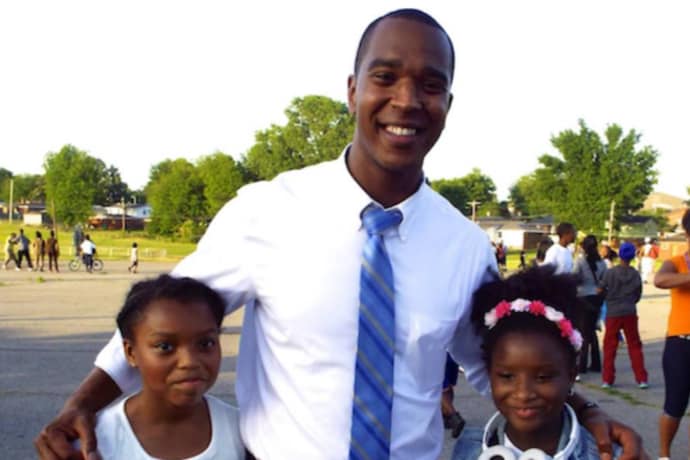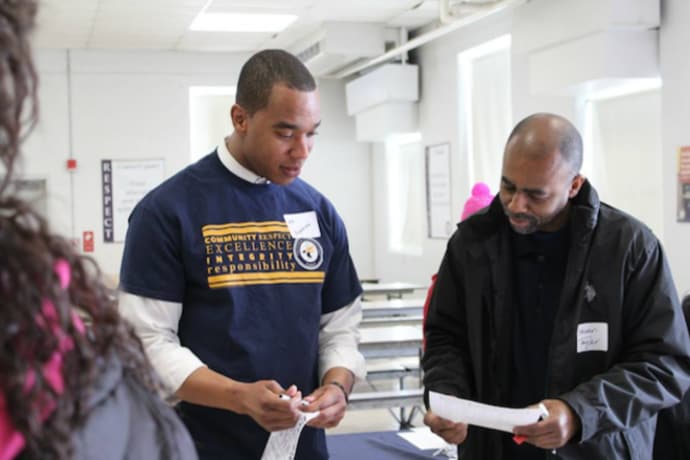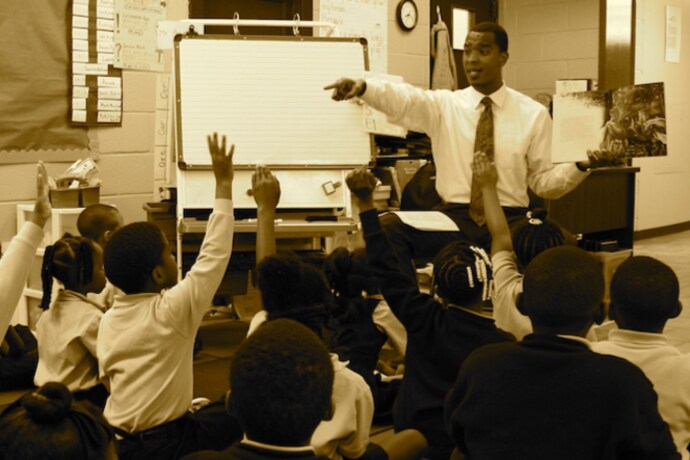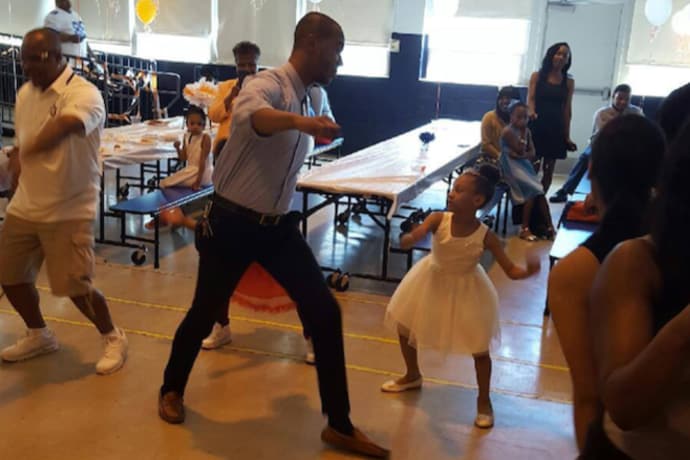10 Years In Indianapolis: ‘We Are At The Beginning Of The Future’

January 18, 2018
Despite being the product of a single parent household, my mother was relentless in instilling a moral compass in me that would guide my decisions during my socialization and transition from a boy to a man. In 2004, I left Indianapolis to attend Florida A&M University (FAMU), and over the course of my college career made it a point to come back during all of my breaks to substitute teach in Lawrence Township and volunteer at the Center For Leadership Development, a youth leadership development program | credit for introducing me to my mentor and ultimately igniting my interest to attend FAMU. My mother would always tell me no matter where your education takes you in life you have a responsibility to “sling-shot" other people by you, and that’s absolutely what I set out to do.
In 2008, I graduated from FAMU and accepted an offer to work with Johnson & Johnson as a Territory Business Manager in their Medical Device division in California, and in 2009, I was promoted and moved to Springfield, IL. While I appreciated the training and confidence Johnson & Johnson had in a young man in his 20’s, I had a deep desire to make an impact on the lives of others. In 2010, | founded and led “Next Up,” a 7-week Youth Leadership Development Program for rising juniors and seniors to prepare them for successful college matriculation. It was rewarding knowing that I was sharing my experiences to inform the experiences these students would have in the coming years. As | reflected on all of the men and women at the Center For Leadership Development that poured into me as a high school student in Indianapolis, I became compelled to try my hand at teaching.

As I was applying to Teach For America in 2010, my spirit was on fire. I would finally get back to Indianapolis, where troublingly, some of the public schools that were failing when I left in 2004 were still at the bottom of the totem pole when it came to student achievement. I then found out my placement region was Memphis, not Indianapolis, but I was still grateful for the opportunity to roll my sleeves up and learn how to become an effective educator. During my time in Memphis, I had the honor of teaching first grade, sixth grade, and the last three years serving as the Dean of Students and Head of School of a high-performing public K-8 Charter School.

While I have spent the last 12 years working and living in other cities, my heart has always been in my beloved hometown. Living in other parts of this country, working in corporate America, and serving as a teacher and school leader in Memphis have given me the experience, context, and confidence necessary to build a school of excellence that will open in July of 2018. I humbly recognize my privilege and deficits. Any opportunity that I have worked to access since leaving was preparing me to come back and build confidence, capacity, and compassion in others here in Indianapolis. While I could have stayed in Memphis or ventured to other cities, nothing could be more fulfilling than being a part of the solution to push our city forward towards fulfilling its potential for ALL citizens.
What are ways school leaders can work together to reimagine our collective impact into the future?
School leaders are the number one driving force when it comes to defining and operationalizing a vision of excellence for the students, staff, and families they serve. It is one of the most isolating, lonely, analyzed, and challenging positions in a profession that exists. Since moving back to Indianapolis, I have been privileged to meet with and observe ambitious school leaders, including Teach For America alumni, from all across the city. Each one bringing different experiences, perspectives, and skills to their position. In the same way students grow when they observe and learn with peers, the strongest school leaders grow when they work with other mission-aligned school leaders to not only share but push what our collective impact should be moving forward.
“While I could have stayed in Memphis or ventured to other cities, nothing could be more fulfilling than being a part of the solution to push our city [Indianapolis] forward towards fulfilling its potential for ALL citizens.”
From my vantage point, the first practical step to doing this is “opening up,” not only the way I think about what makes an excellent school but working together to learn more about how high performing school(s) can substantially impact more than just students. I think the next step is having a ‘ritualistic’ time to get together and start to have conversations that may be difficult to
get granular on what “collective impact" is, and what responsibility do school leaders have to be aware of this during the long days, weeks, and months that can make it difficult to think beyond state assessments and school letter grades. I have a mindset of first respect for anyone who is called to teach or lead in a school and secondly to seek out school leaders that think about not just the impact their programs are having on students but also on families, neighborhoods, and communities.
Focus on future vs. past
I have a rich appreciation for learning about things that have happened in the past. It does not matter if it is a book, video, or an interaction with someone else, ever since I was a kid, learning about how something was before I arrived peaked my interest. Ironically, I often spend more time thinking about the future vs. the past. It may play into me being fiercely optimistic when it
comes to figuring out solutions to problems that have been sustained barriers.

When I apply this thinking to the context of working to create collective impact within K—12 education here in Indianapolis, I am excited about the realization that something different has to be done in order for our schools to get better results for kids. In the same breath, there are some best practices when it comes to building great outcomes driven schools that have worked in the past and will continue to yield significant student achievement and growth in the future. We are at the beginning of the future; school districts are moving to more of a decentralized model where principals have more voice and autonomy over what they feel is best for their students. More schools are moving towards providing teachers with daily and weekly professional development to ensure they are growing and fluent in using data to tailor instruction to meet student needs.

As I look myself in the mirror and speak truth to my ego, | always ask myself what “we” as Teach For America corps members and alumni from teachers, school leaders, system leaders, and policymakers are working to do take into account what families feel are best for their children? As we move forward, I invite us to challenge us as individuals and school leaders to seek out perspectives from one another to inform the work that must be done with intention and urgency to yield not just outcomes, but inspiration and opportunity for thousands of families here in this great city.


